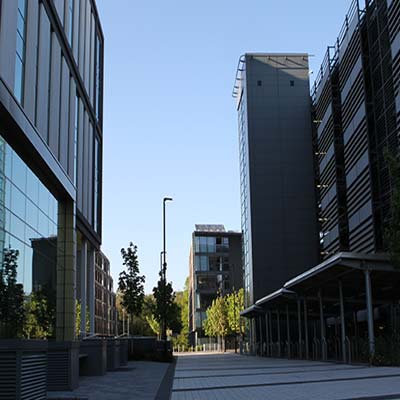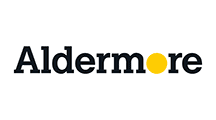Can I get a semi-commercial mortgage?
Getting a semi-commercial mortgage is easier than securing pure-commercial finance. Buying a semi-commercial property is a nice way to transition into investing in business properties, given lender criteria is more flexible.
You will need a minimum of 25% deposit. This can come from cash savings, or you could raise it from other property you own.
Factors that may impact getting a semi-commercial mortgage
- Some types of poor credit
- Not having enough money for a deposit
- The value of the property being less than you expected
If you have questions, chat to our advisors on live chat, via the phone, or get a call-back we're here to help.
Today's semi-commercial mortgage rates
Semi-commercial mortgage rates tend to be lower than the pure commercial rates you will find in our commercial mortgage calculator, so speak to our advisors for details.
Eligibility for a semi-commercial mortgage
- First time buyers to experienced landlords
- You must be over 18 years old
- Minimum deposit 25% of the property value
- Upper age limits at application are flexible
- Low personal incomes are accepted
- Property, pension and employment income is OK
Ready to get started?
Your personal advisor will call. Direct lines start 01603. Get today's rates, help, or apply. Lender terms provided in as little as two hours!
What is a semi-commercial mortgage?
A semi-commercial mortgage, also called a ‘mixed-use mortgage’, is used to purchase or refinance a property that has both commercial and residential elements.
Semi-commercial mortgage interest rates are typically higher than for a residential rental property (which would require a buy to let mortgage); but lower than a building solely for business use (which would require a 'pure' commercial mortgage).
There is a wide range of lenders in the market offering this type of product and the team at Commercial Trust are experts in this field. Get in touch today to chat through your needs, or read on for more information.
Types of semi-commercial property
Semi-commercial property can include a range of property types. One of the most common is a shop with a flat above it, which are seen all over the UK.
Other semi-commercial property examples include
- Pubs with living accommodation
- Offices with separate access to residential property
- Commercial units with a residential property
- Kennels or catteries with a house attached
- Doctors surgery or veterinary surgery with accommodation
- A café, restaurant or takeaway with flats above
Essentially, any mixed-use property on the same plot.
How does a semi-commercial mortgage work?
A semi-commercial mortgage works in a similar way to a residential mortgage. However, the main difference is that the lender will take into account the commercial element of the property when assessing the risk. This means that the lender will consider both the rental income from the residential part of the property and the rental income from the commercial part of the property.
Lenders will typically lend up to 75% of the property's value for semi-commercial mortgages, but this can vary depending on the lender and the borrower's circumstances.
We work with a wide range of semi-commercial mortgage lenders, including:
Why choose Commercial Trust?

Apply with ease by phone
It couldn't be easier to secure a semi-commercial mortgage with our expert advisors. Ask all your questions and arrange an application on the phone from your sofa.
World class customer service
We'll find you a great deal and take all the admin work off your shoulders, so you can relax while we get your mortgage completed. All the while giving you progress updates.
Specialist expertise
Our whole focus is landlord finance solutions, which means that you will get a recommendation based on detailed knowledge of the latest deals available.
We can help you with...
- Borrowing up to 75% loan to value
- No minimum income options
- Flexible maximum age requirements
- 2 and 5 year deal periods
- Owner-occupied commercial mortgage
- Investment mortgages based off rental income
- Complex cases
- Portfolio deals
- Special Purpose Vehicle applications
- Trading limited companies applications
- First time landlord applications
- Capital repayment, interest-only or part and part
- Flexible purposes for capital raising
- Dual representation solicitor options

"Semi-commercial mortgages benefit from lower rates than pure commercial, so are a lot more accessible"
Investing in semi-commercial property can be as an owner-occupier or an investment. This client invested via their limited company, and you can invest as an individual too. James Doggett, semi-commercial mortgage specialist.
Find out more
Costs involved in a semi-commercial mortgage
Lenders may charge you for the valuation conducted on your property. They often also charge a product fee, sometimes this can be added to the mortgage.
You will need a conveyancing solicitor who will charge fees. Read our guide to choosing a conveyancing solicitor.
We charge a broker fee for our work. You pay in two parts. A booking fee, once we have found you a mortgage deal, at application. The majority of our fee is paid at completion of the mortgage.
Every mortgage comes with monthly mortgage costs based on the mortgage interest rate the lender charges. These are paid on either an interest-only or capital repayment basis.
How to apply for a semi-commercial mortgage
1
Tell our advisors about the property you are investing in, your needs and circumstances. If you have credit concerns, chat to us about them, so we can put you with the right lender.
2
Your advisor will find the best possible deal from a search of thousands of products. They will get you a lender decision in principle, this requires a soft credit search (occasionally it is a hard credit search).
3
Your advisor will call to discuss the product they have found for you. You will be presented with one mortgage, that is the best match for all your needs and offers you the most cost effective option.
4
On your instruction, your advisor will submit your mortgage application. Your account manager then does all liaison and administrative work to complete the deal, whilst keeping you updated at every step.
What our clients say about us
Frequently asked questions
A semi-commercial mortgage is a loan, which uses a property as collateral. The property will be partly for business/commercial use and partly for residential use.
An applicant might run their own business from the commercial part of the property, or have invested in the property in order to rent all of it out.
You can even occupy up to 40% of the plot (land and property) for your own residential use.
The Financial Conduct Authority (FCA) do not regulate semi-commercial mortgages, where you are renting out the property.
So, if you are investing in a property, which has both residential and business use, your mortgage will not be regulated.
It is possible to use up to 40% of a premises that is missed use for a residential property you will live in. This includes the land and the property.
However, if the element of the plot for your own residential use is over 40%, you cannot get an unregulated semi-commercial mortgage on it and so may require an FCA regulated mortgage product.
A commercial property is only used for business activities; it could be anything from a small village shop to a huge warehouse distribution centre.
A semi-commercial property, otherwise known as a mixed-use property, is used for both business and residential purposes. A typical example would be a shop with a flat above it, but can involve any property where the two functions are mixed.
Mortgage rates for semi-commercial property are lower than those for ‘pure’ commercial properties.







